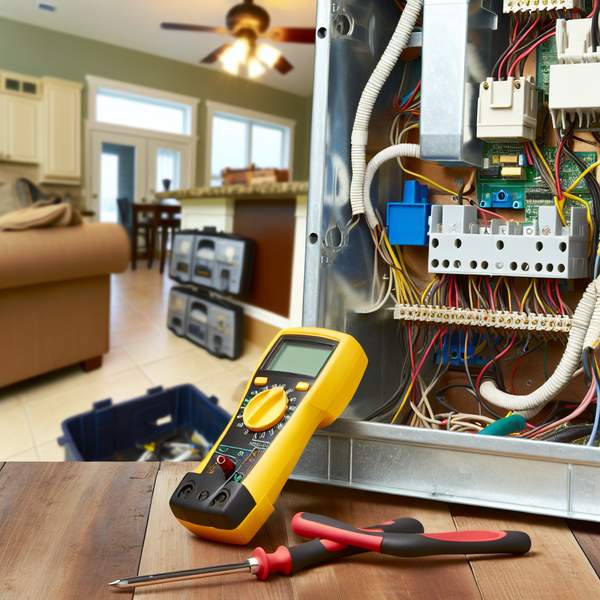Electrical wiring issues are a hidden hazard lurking in many American homes, often unnoticed until a serious problem occurs. Proper wiring is essential for both safety and functionality, and understanding common issues can help homeowners avoid potential dangers. As a seasoned home inspector, I’ve seen firsthand the importance of addressing these concerns proactively. Let’s delve into the most common wiring issues that could compromise your home’s safety.
Outdated Wiring Systems
Many older homes still rely on antiquated wiring systems, such as knob-and-tube or aluminum wiring. These systems were not designed to handle the electrical load of modern appliances and can easily become overheated, posing a fire risk.
- Knob-and-Tube Wiring: Recognizable by its ceramic knobs and tubes, this system lacks grounding and insulation, increasing the risk of electrical shock and fire.
- Aluminum Wiring: Prone to oxidation and thermal expansion, aluminum wiring can cause loose connections, leading to arcing and overheating.
If your home has these systems, consider upgrading to modern copper wiring to meet current safety standards.
Improperly Installed Circuits
Incorrectly installed circuits are a common oversight during amateur electrical work. Such mistakes can lead to circuit overloads and potential hazards.
- Overloaded Circuits: Ensure each circuit has a dedicated purpose and is not overloaded with too many appliances, which can trip breakers and cause overheating.
- Incorrect Wire Gauge: Using the wrong wire gauge for a circuit’s amperage can result in overheating. For instance, a 20-amp circuit should use 12-gauge wire for optimal safety.
Always consult a professional electrician to verify that your circuits are correctly installed and configured.
Inadequate Grounding
Grounding is essential for preventing electrical shocks and ensuring the safety of your home’s electrical system. Without proper grounding, electrical faults can lead to dangerous situations.
- Inspect outlets and ensure they are three-pronged, indicating a grounded circuit.
- Check that your home’s main electrical panel is properly grounded to a grounding rod or water pipe as per the National Electrical Code (NEC) requirements.
Regular inspections are crucial to maintaining a safe home environment. By addressing these common wiring issues, you protect your family and property from potential hazards. For a thorough evaluation of your home’s electrical system, schedule a professional home inspection today, and ensure peace of mind for years to come.

